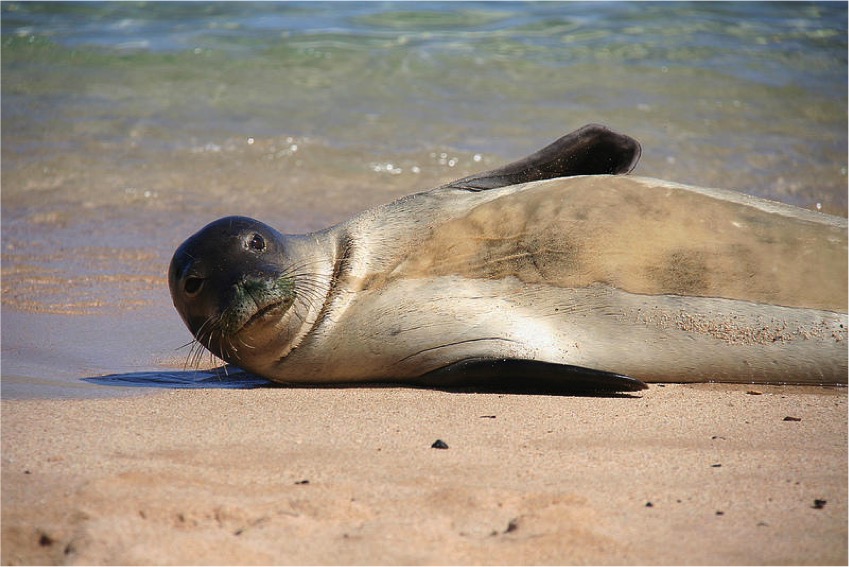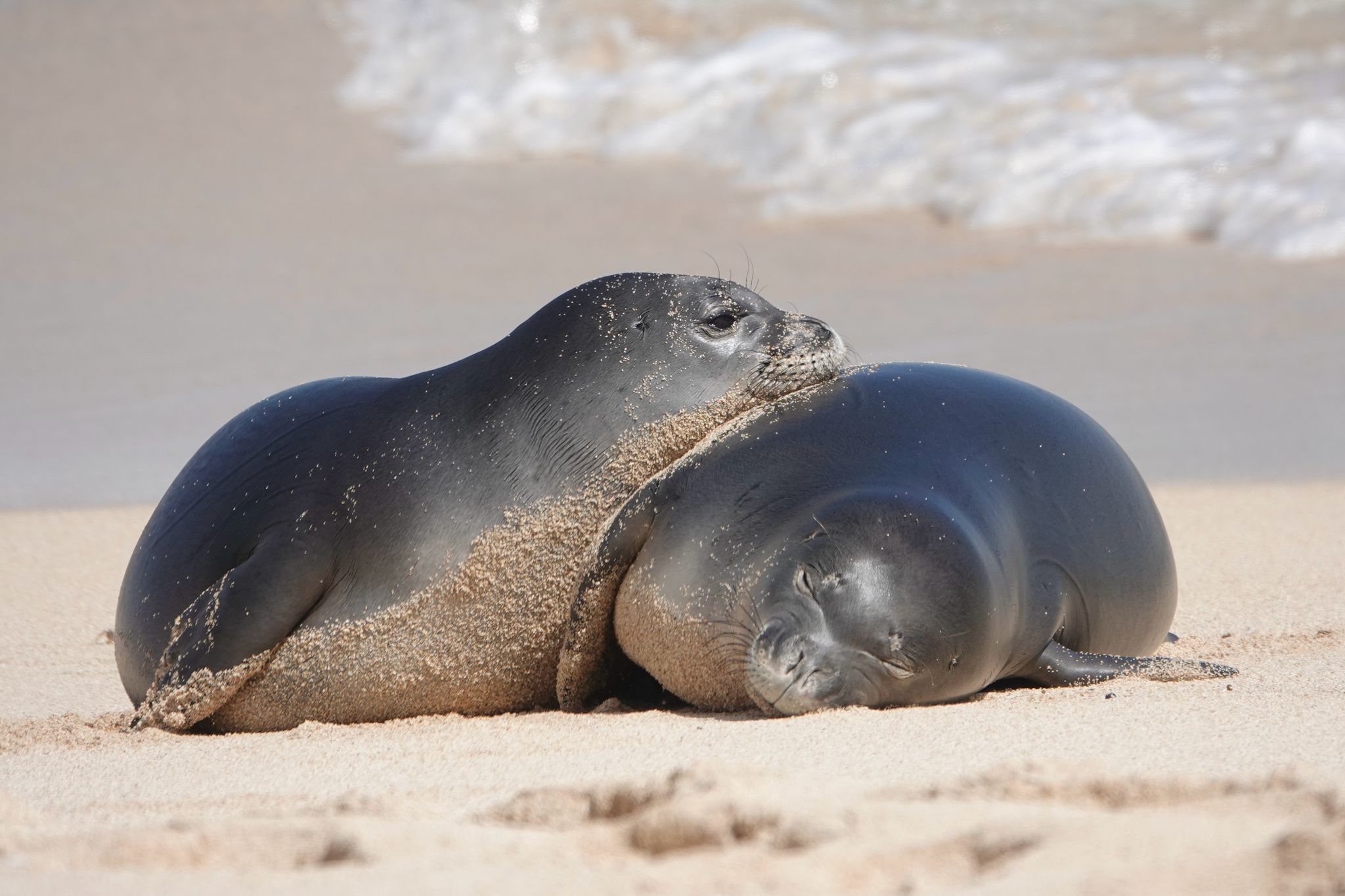Learn more about our volunteer opportunities.
As part of the HMAR volunteer team, you can make an important impact in helping Hawaiʻi’s vulnerable protected marine animals. Different volunteer opportunities have different activities, minimum requirements, and physical demands but all volunteers are assigned activities that directly support one or more of our 3 core programs – our Monk Seal Support Program, Sea Turtle Support Program and Seabird Support Program. Once you’ve explored our volunteer opportunities below, you may submit an application for a volunteer or internship assignment from the links below.
Note that applications for volunteer or internship opportunities are reviewed on a competitive basis. Not all volunteer or internship applications will result in a volunteer or internship assignment.
The general requirements that apply to all HMAR volunteer opportunities include:
- Volunteers or interns should have an interest, desire and ability to engage with the public.
- You must be at least 18 years old.
- Field Volunteers must reside on Oʻahu or Molokai for the duration of the volunteer assignment (minimum 1 year).
- Operations Support Volunteers do not need to reside on Oʻahu or Molokai but prior experience living in Hawaiʻi is highly desirable.
- You must be a U.S. citizen or have all needed and applicable visas or immigration status.
- To be a Field Volunteer, you must be physically fit. Most of HMAR’s field activity involves physical activity that may occur in hot, windy, rainy or other challenging conditions.
- For your safety, the safety of others near you, and the safety of animals we work with, you must not have a physical or mental incapacity that would limit your ability to effectively participate as a volunteer or intern, or to perform assigned HMAR activities. HMAR, in its sole discretion, will determine the ability and suitability of a volunteer or intern to perform assigned HMAR functions safely and effectively.
- Volunteers need to possess a team-based work ethic and attitude.
- If required, you may be asked to provide a background check.
- Communication is critical for volunteers and interns. For field activity, you will need a smartphone with 4G data service as well as a stand-alone digital camera.
- You will be asked to complete reports of the activities you performed in an accurate and timely manner.

As a Field Volunteer you will be making a positive impact on the conservation and recovery of Hawaiian monk seals, sea turtles, seabirds, and the ocean they call home. Field Volunteers participate in activities that support our Monk Seal Support Program, Sea Turtle Support Program, and Seabird Support Program.
All Field Volunteers begin as a Level 1 team member. After Level 1 training and conducting Level 1 activity for a period of time, and based on your personnel qualifications and desire, you may be invited to become a Level 2 Field Volunteer and later, a Level 3 Field Volunteer.
Persons with prior field experience with marine protected animals may be invited to progress at a faster pace.
These three Field Volunteer levels are described below.
Level 1 Field Volunteers: Level 1 Field Volunteers can do some or all of the following important work depending on your schedule, interests, availability, the season, and the needs in the field each day:
- Respond in the field on shorelines to reports of Hawaiian monk seals, sea turtles and seabirds.
- When responding to monk seals, make a general assessment of the animal’s condition, identify the individual animal, obtain photographs and identify potential animal health concerns.
- Perform public outreach at locations where monk seals, sea turtles and seabirds may be in proximity to humans.
- When appropriate, establish perimeters around monk seals to decrease interactions.
- Perform seabird habitat maintenance or restoration work.
- Perform seabird population surveys.
- Conduct seabird behavorial data collection and public outreach at established seabird colonies managed by HMAR.
- Assist HMAR staff and other HMAR volunteers in performing other animal interventions, stranding response, rescue and animal transport.
Level 2 Field Volunteers: Volunteers with the needed experience, qualifications and desire may be invited to progress to Level 2 field work. Level 2 Field Volunteers do the following important work:
- Perform all of the functions of a Level 1 Field Volunteer described above.
- Assist with or perform monk seal, sea turtle or seabird escalations, interventions, rescues and stranding responses on the shore.
- Assist with or perform sea turtle rehabilitation and medical care at the HMAR Care Center facility.
- With additional experience and qualifications, Level 2 Field Volunteers may be invited to become Level 3 Field Volunteers.
Level 3 Field Volunteers: Volunteers with the needed experience, qualifications and desire may be invited to progress to Level 3 field work. Level 3 Field Volunteers do the following important work:
- Perform all of the functions of a Level 1 and Level 2 Field Volunteer described above.
- Assist with or perform monk seal, sea turtle or seabird escalations, interventions, rescues and stranding responses in or on the ocean. Note that additional physical and in/on-water qualifications apply for volunteers progressing to Level 3 activity.
Field Volunteer Requirements:
- Volunteers must meet all of the general HMAR volunteer requirements (listed above on this page).
- Level 1 volunteers must be able to walk in sandy, rocky and unstable shoreline conditions for 2 miles. Level 2 and Level 3 volunteers must be able to walk in these conditions for 3 miles.
- Level 1 volunteers must be able to lift and carry a minimum of 35 pounds for 100 feet in beach and rocky conditions. Level 2 and Level 3 volunteers must be able to lift and carry 70 pounds in the same conditions.
- Field Volunteers must be able to conduct outdoor response and rescue activity during hot, rainy or windy conditions and be able and willing to work on your feet in these conditions for 6 hours.
- Level 2 and Level 3 volunteers must be willing and able to respond anywhere on the island of Oʻahu.
- Level 3 volunteers must also meet certain in/on-water qualifications such as swimming, breath holding, and kayak paddling.
- Ability to maintain a calm demeanor in potentially stressful conditions.
- Access to a reliable car. Motorcycles or scooters will not be sufficient.
- Possess a valid driver’s license and vehicle insurance with minimum Hawaiʻi liability coverage.
- Possess a digital camera (a smartphone only is not sufficient) with at least a 35X zoom.
- Level 2 and Level 3 volunteers must possess a set of binoculars with at least 10X magnification.
Minimum volunteer activity:
- Level 1 volunteers commit to a minimum of 2 four-hour activity shifts each month.
- Level 2 and Level 3 volunteers commit to a minimum of one 5-hour shift each week on the same days and times each week.
- Minimum activity requirement is 1 year.
- Some exceptions to these minimum commitment levels may be granted under certain circumstances (i.e. military duty, etc.
Operations Support Volunteers manage telephone hotlines that receive thousands of calls every year from the public and government agencies so that we can mount the most appropriate field action needed. Operations Support team members dispatch HMAR personnel to enable field response, manage inter-agency activity, and also record and share data obtained in the field with government research and species management partners to enhance conservation and recovery efforts. Member of this team also manage other vital HMAR systems such as online volunteer management and training systems that enable us to operate most efficiently with well-trained personnel for maximum results.
What activities will you be asked to do as an Operations Support Volunteer?
- Repond to phone calls, texts and email submissions of protected marine species sightings and animals in distress from the public, government agencies, and others.
- Coordinate as needed with law enforcement or other government agencies in escalated situations.
- Complete computerized dispatch reports and contact appropriate personnel for field response.
- Enter field data into reports.
- Update and create activity reports.
- Maintain the minimum activity level for this program.
Additional volunteer requirements:
- Volunteers must meet all of the general HMAR volunteer requirements listed above except the physical requirements, need for a vehicle, and need for a digital camera.
- Must be able to perform more than one important activity at the same time.
- Ability to maintain a calm demeanor in potentially stressful conditions.
- Access to a reliable computer, phone and Internet service.
- Access to a work location with minimal background noise.
- Experience with computer applications such as Microsoft Excel and Google Docs.
Volunteer activity requirements:
- Volunteers on this team commit to a minimum of at least 1 five-hour activity session each week.
- Minimum activity requirement is 1 year.
- Only applicants agreeing to the minimum activity commitment will be accepted for this assignment.
- Some exceptions to these minimum commitment levels may be granted under certain circumstances (i.e. military duty, etc.)

